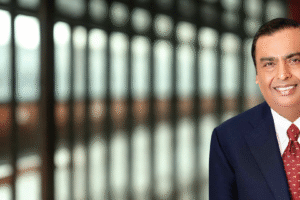In Parliament, the Centre Government introduced the Telecommunications Bill, 2023, on Monday, December 18. The proposed law aims to introduce several structural changes to the industry’s current regulatory mechanisms, including increased user verification requirements, clarity in spectrum assignment, and a more straightforward licensing regime.
The government views these outdated laws from the colonial era as needing reform, especially in light of recent changes to the telecom industry. The Bill aims to replace the Indian Telegraph Act (1885), the Wireless Telegraphy Act (1933), and the Telegraph Wires (Unlawful Possession) Act (1950).
Concerns have also been raised, chiefly about the Bill’s apparent exclusion of Internet-based communication services like Telegram, Signal, and WhatsApp from its purview and the requirements for interception of communications over telecom networks.
Key Points of the Telecom Law
The Bill aims to streamline the telecom networks’ current licensing regime by shifting to an authorization system. The Bill combines more than 100 different licenses, registrations, and permissions that the telecom department currently issues into a single authorization process.
Although auctions will remain the preferred method of allocating spectrum to organizations, administrative allocation will occur for industries other than satellite communications, such as police, community radio, metro rails, defence, and railroads.
The Bill also allows the government to reclaim spectrum underutilized for insufficient purposes and permits spectrum sharing, trading, and leasing. Organizations can turn in any unused spectrum, but the government won’t pay them.
A voluntary undertaking mechanism has been implemented to encourage voluntary disclosure of unintentional lapses and promote compliance. A three-tiered system includes an adjudicating officer, a designated committee of appeals, and the Telecom Disputes Settlement and Appellate Tribunal (TDSAT) at the top for resolving disputes resulting from violations of terms and conditions.
To reduce fraud, entities are required to implement biometric authentication for their users. Users’ privacy has come under scrutiny due to this provision.
In the event of a public emergency, interest, or safety concern, the Bill gives the federal and state governments, or a specially authorized officer, the authority to request interception, disclosure, and suspension powers. Although they can be intercepted for national security purposes, press messages intended for publication in India and those from correspondents accredited to state or federal governments are not subject to interception.
The contentious discussion surrounding spectrum distribution and auctions, as well as the aftermath of the 2012 Supreme Court decision:
The Bill also gives the Center the authority to assume control and management of telecommunications services and networks in the event of a war or the interest of national security. It was a surprise addition to the Parliament’s agenda late Sunday night.
The Telecommunications Bill 2023 has opened the door for administrative spectrum allocation for satellite broadband services. India is set to follow the global norm in how much spectrum is assigned to entities. This is due to the significant debate surrounding the allocation and auction of spectrum and the fallout from the 2012 SC ruling. Elon Musk’s Starlink, Amazon’s Kuiper, and Bharti Airtel’s OneWeb could all benefit greatly.
The government and a divided industry were at odds over how to assign spectrum for satellite communications, whether through an auction or administrative means. The telecom department even asked the telecom regulator, TRAI, for guidelines on auctioning satellite spectrum.
The indusofydistributingived the idea to distribute spectrum. Director General of the Indian Space Association, Anil Kumar Bhatt, stated, “By allocating the spectrum by the administrative method for Satcom, India could align itself with international standards, promote global cooperation and also help drive innovation, create opportunities for startups, and strengthen the country’s position in the global satellite market.”
Telecommunications Bill 2023: The question of Internet service regulation
Though narrowed down, experts and some government officials feel that the current Bill’s definition of online communication services, like WhatsApp, Instagram, and Telegram, has been left open to other platforms as well, potentially initially. This is in contrast to a 2022 draft that had specifically mentioned these services as telecommunication services.
According to the new Bill, telecom services and networks will require authorization from the government unless the government chooses to exempt specific entities in the public interest.
“Transmission, emission or reception of any messages, by wire, radio, optical or other electromagnetic systems, whether or not such messages have been subjected to rearrangement, computation or other processes by any means in the course of their transmission, emission or reception” is the definition of telecommunication that remains unchanged in the new Bill. “Any sign, signal, writing, text, image, sound, video, data stream, intelligence or information sent through telecommunication” is another definition of “messages.”
On the other hand, some think that the definitions categorically exclude online platforms. As recommended by IAMAI, the industry association said in a statement, “The bill introduced in the Lok Sabha now excludes email, internet-based communication services, broadcasting services, machine-to-machine communication services, and over-the-top (OTT) communication services.”
Advertisement




